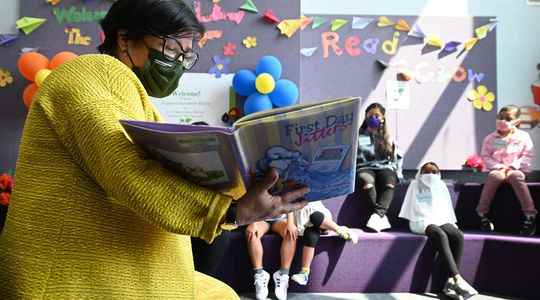In November, a Kansas county school board announced the removal from circulation of 29 books from school libraries, including The bluest eye by Toni Morrison, the Scarlet Maid by Margaret Atwood and They Called Themselves the KKK, a history of the Ku Klux Klan. The same month, another school board, in Virginia, asked for the blacklisting of works “of a sexual nature”, after the complaint of a mother of students shocked by 33 Snowfish by Adam Rapp, which deals with homeless teenagers, prostitution, sexual abuse and drugs. “I believe these books should be burned,” said one of the commission members.
In Texas, a Republican elected official sent a list of 850 titles to libraries asking them to identify, on the shelves, those whose content could create in students “a feeling of embarrassment, guilt or anxiety” due to their race or sex. Among the sulphurous works, The Confessions of Nat Turner by William Styron, the story of a slave revolt, and The work of God, the part of the devil of John Irving, who talks about an obstetrician abortionist.
A way for Republicans to mobilize their electoral base
Throughout the United States, calls for the purge of novels that denounce the facts of racism and defend the LGBTQ cause is on the rise. There is an “unprecedented rise” in censorship attempts, says Deborah Caldwell-Stone, head of the American Library Association. From September to November alone, it recorded 330 complaints, more than the 156 recorded in 2020.
The current national offensive is instrumentalized by the Republican Party. It exploits the frustrations and unease of parents of students, furious at school closures due to the pandemic, the imposition of mask-wearing and teaching that they believe goes too far in the name of the diversity. Admittedly, the sexual, violent and transgressive content of certain books can shock parents. And we can ask legitimate questions about teaching in high school. Should we favor novels centered on the history of young blacks or transgender people, or rather the classics of American literature? But in reality, the Republicans are not interested in the educational debate. Their offensive aims to mobilize the base by means of a culture war. Glenn Youngkin, recently elected governor of Virginia, had made it the central theme of his campaign, with a TV spot in which a student’s mother criticized the very “raw” content of Beloved by Toni Morrison on slavery, which her son was studying in high school.
It was the white conservatives’ response to the Black Lives Matter wave, following the death of George Floyd, that sparked a debate about “systemic racism” in society. It is also due to demographic change. “Whites are no longer a majority among those under 18 and will no longer be in the population in 2040, explains Emily Knox, professor at the University of Illinois and author of Book Banning in 21st-Century America. The current tensions are linked to that.”
A desire for censorship from all political sides
At the origin of the current unrest, the conservative activist group No Left Turn in Education pinned on its site about sixty books which “propagate radical ideologies” in order to “indoctrinate children”. These books, they say, “denigrate our nation and its heroes, revise our history.” In other words, they represent black people as victims and white people as their oppressors.
In the United States, there have always been initiatives to ban books, and the left is no exception. Last year, the beneficiaries of Dr. Seuss, a sacred monster of children’s literature of the 1950s, withdrew from sale six albums deemed racist. A California school district eliminated from the program Took no mockingbird of Harper Lee, who talks about racial injustice in the 1930s, and Of mice and Men by John Steinbeck, whose action takes place at the time of the Great Depression, for their “problematic” side. “They repeatedly use the word ‘nigger’, portray black people in a negative light” and “were written through the prism of a white author,” a statement said.
Faced with the national censorship movement launched by the conservatives, some are counter-attacking. In Texas, librarians have mobilized and are bombarding elected officials with tweets and letters. In Pennsylvania, high school students enraged by censorship in their school demonstrated and created a “banned books club”. They eventually prevailed, like in Kansas and Virginia, where the district put the titles back into circulation. These controversies have a positive effect: they make people read! After Governor Youngkin’s campaign, sales of Beloved have flown away.
